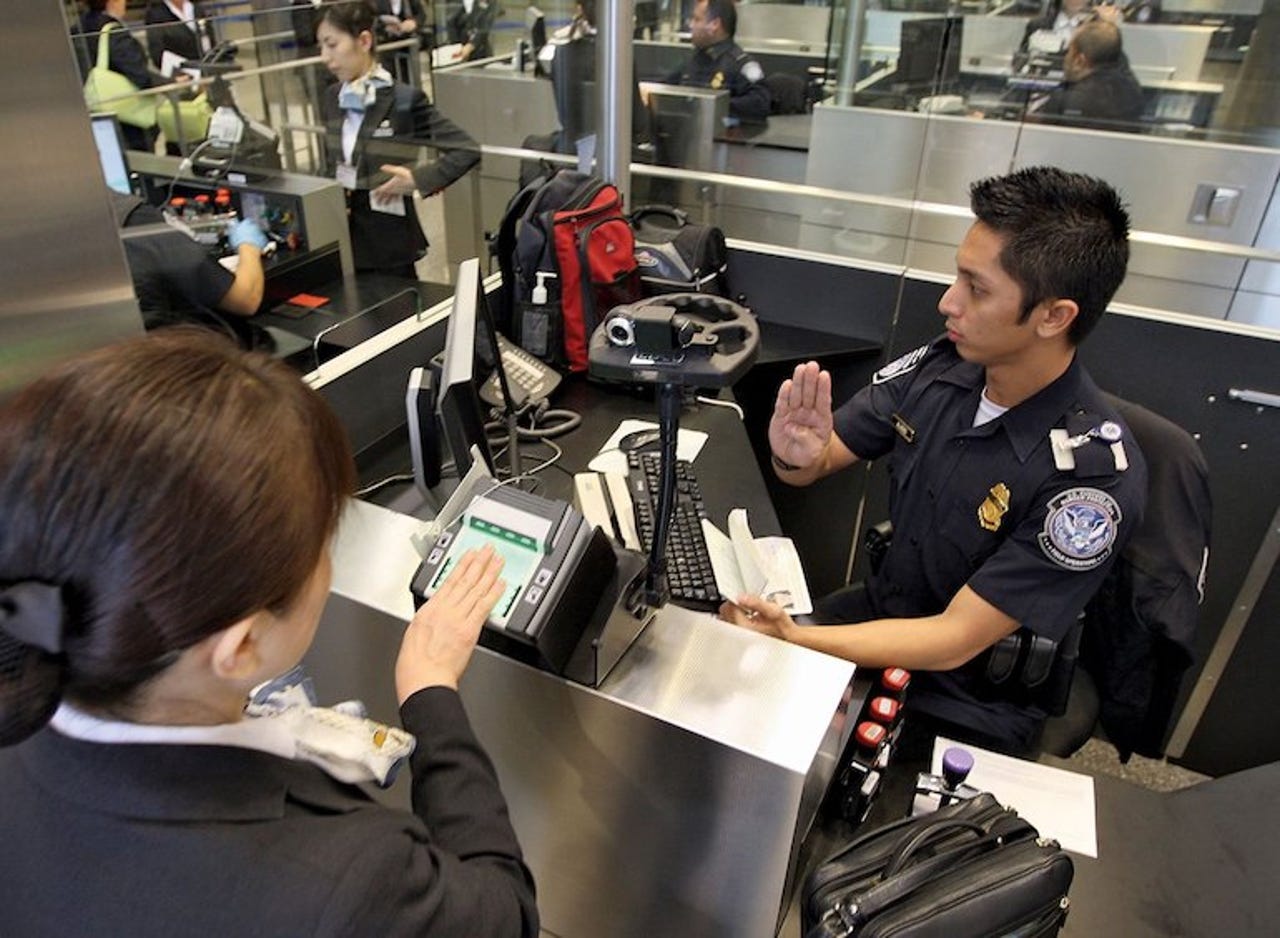Warrantless phone, laptop searches at the US border hit record levels


(Image: file photo)
Officials have searched a record number of phones and laptops of travelers entering the US in the past year.
New figures released Friday reveal that Customs and Border Protection (CBP) officers searched 30,200 devices -- an increase of about 60 percent year-over-year -- between October 2016 and September 2017.
national security
That averages out to about 2,500 searches each month out of more than 397 million who crossed the border -- or less than 0.01 percent of all international travelers, according to the agency charged with enforcing immigration and customs rules at the nation's ports of entry.
CBP said that device searchers are necessary to combat terrorism, child pornography, and visa fraud.
But it's more than triple the number of searches conducted in 2015, when the agency searched 8,500 devices.
The new numbers represent the highest number of device searches since its parent department Homeland Security was founded in 2003.
CBP spokesperson Jennifer Gabris said the rise was attributable to an increase in international arrivals, and that travelers are carrying more devices.
The agency said newly-issued guidelines, replacing a 2009 directive that allow border searches of devices belonging to both Americans and foreign nationals without a warrant, will now require "reasonable suspicion" for border authorities to conduct a deeper, so-called "advanced search" of a travelers' phone or laptop.
But basic searches carried out at random -- which don't require any reasonable suspicion -- are still permitted, the guidelines say. That allows border officials to search the phone, including text messages, emails and contact lists, and photos and videos without downloading the contents for later inspection.
The government has long believed that the US border affords Americans only some, but not all constitutional rights because they have yet to cross into the US. Foreign nationals have almost no rights whatsoever.
Critics of the government's border search policies said the move was an improvement, but didn't go far enough.
Sen. Ron Wyden (D-OR) said in a statement that the new policy will "still allow far too many indiscriminate searches of innocent Americans."
"CBP agents will continue to be able to manually examine an individual's device, including looking through their browsing history, photos and messages stored on the device, without reasonable suspicion," he said.
Wyden warned that the new rules "also explicitly permit CBP to attempt to bypass the encryption or brute-force a password protecting a device seized at the border without reasonable suspicion."
Neema Singh Guliani, legislative counsel at the American Civil Liberties Union, said the policy "falls far short of what the Constitution requires" -- a search warrant based on probable cause, a set standard in US criminal law.
"The policy would still enable officers at the border to manually sift through a traveler's photos, emails, documents, and other information stored on a device without individualized suspicion of any kind," said Guliani. "Additionally, it fails to make clear that travelers should not be under any obligation to provide passcodes or other assistance to officers seeking to access their private information."
Device border searches remain a contentious and controversial topic, one that has piqued the interest of several lawmakers, who want to rein in that power.
A bill introduced by Wyden last year would have forced border officials to obtain a court-approved warrant before accessing Americans' files and photos.
Last month, the Knight First Amendment Institute at New York City's Columbia University obtained hundreds of filed privacy complaints under the Freedom of Information Act, which were then provided to The New York Times. Many of those in the complaints were American.
Wyden's bill, introduced in April 2017, has yet to be assigned a committee and looks unlikely to make it into law, but aims to help protect the privacy of millions of Americans who travel overseas each year.
"By requiring a warrant to search Americans' devices and prohibiting unreasonable delay, this bill makes sure that border agents are focused on criminals and terrorists instead of wasting their time thumbing through innocent Americans' personal photos and other data," said Wyden, at the time.